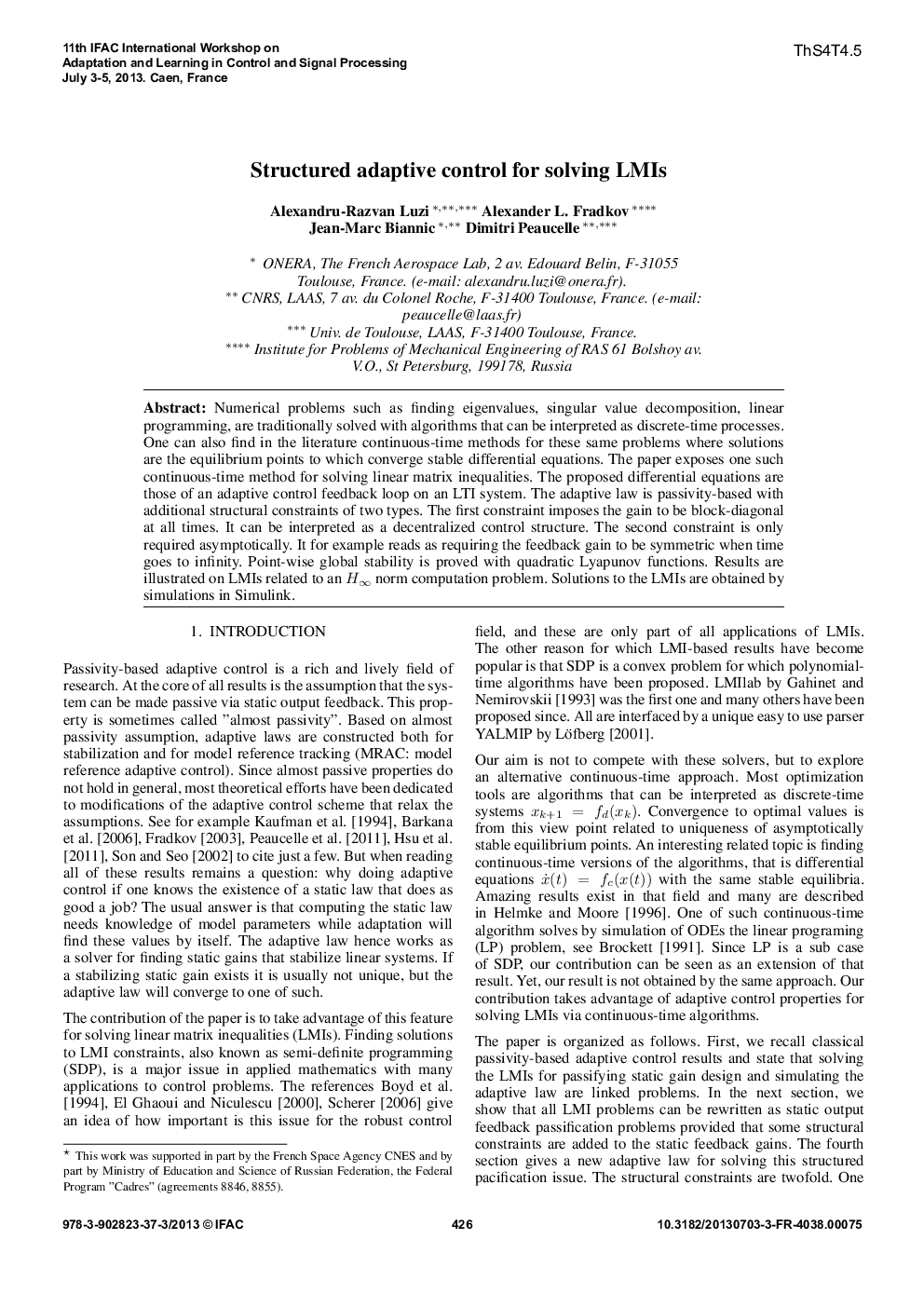| کد مقاله | کد نشریه | سال انتشار | مقاله انگلیسی | نسخه تمام متن |
|---|---|---|---|---|
| 713043 | 892161 | 2013 | 6 صفحه PDF | دانلود رایگان |

Numerical problems such as finding eigenvalues, singular value decomposition, linear programming, are traditionally solved with algorithms that can be interpreted as discrete-time processes. One can also find in the literature continuous-time methods for these same problems where solutions are the equilibrium points to which converge stable differential equations. The paper exposes one such continuous-time method for solving linear matrix inequalities. The proposed differential equations are those of an adaptive control feedback loop on an LTI system. The adaptive law is passivity-based with additional structural constraints of two types. The first constraint imposes the gain to be block-diagonal at all times. It can be interpreted as a decentralized control structure. The second constraint is only required asymptotically. It for example reads as requiring the feedback gain to be symmetric when time goes to infinity. Point-wise global stability is proved with quadratic Lyapunov functions. Results are illustrated on LMIs related to an H∞ norm computation problem. Solutions to the LMIs are obtained by simulations in Simulink.
Journal: IFAC Proceedings Volumes - Volume 46, Issue 11, 2013, Pages 426-431